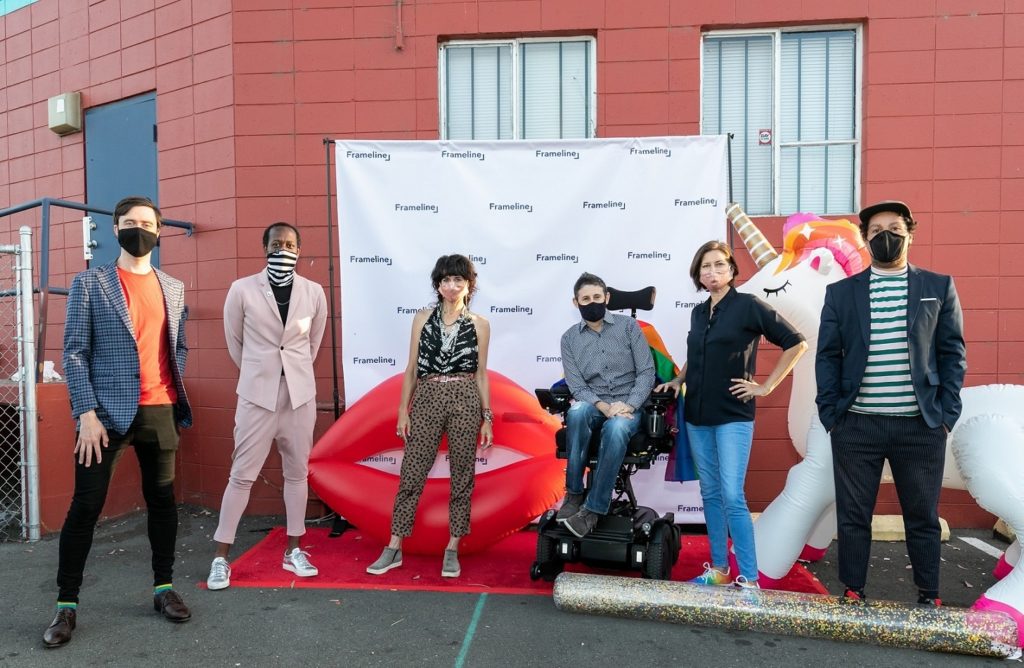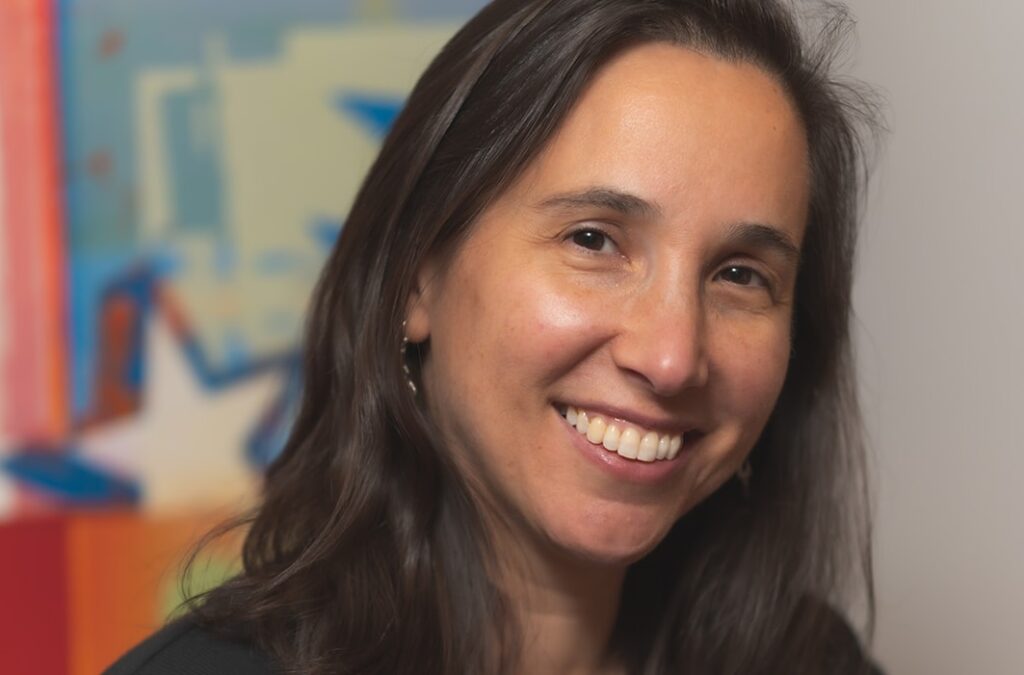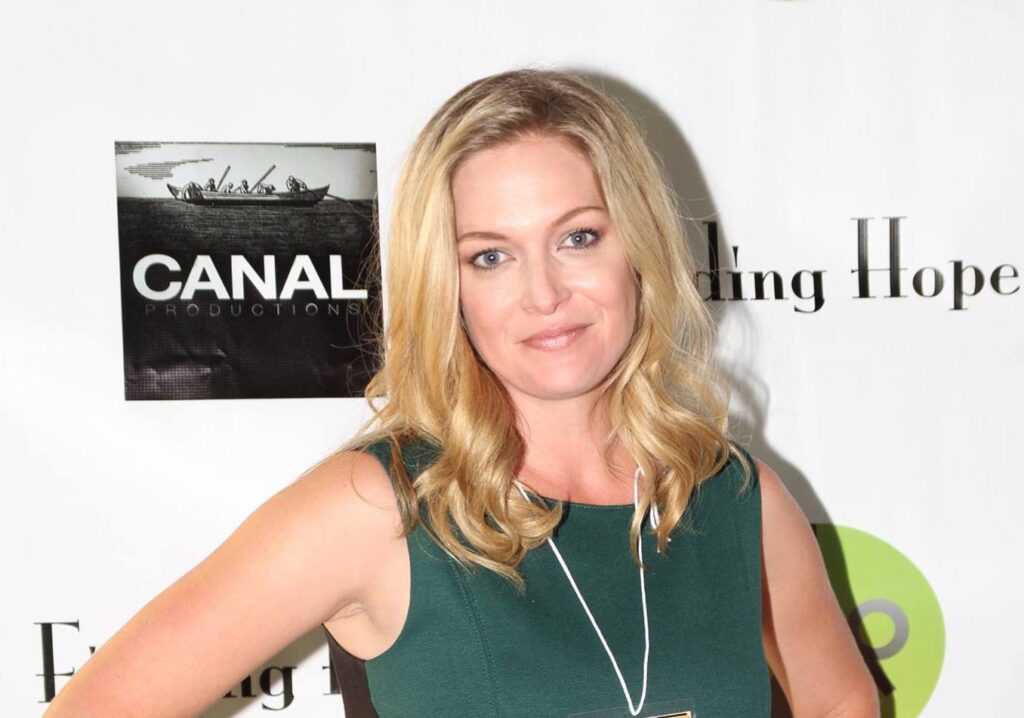By Jen Rainin and Rivkah Beth Medow
Shivering at 4 a.m. in an empty drive-in theater parking lot was not how we expected to spend the day before our film “Ahead of the Curve’s” world premiere. The salmon and gold streaked sky told us we had 20 minutes before the sun rose to solve a vicious sound problem. It was surreal, but a fitting start to navigating the uncharted distribution waters for our independent film in 2020.
“Ahead of the Curve” is a feature documentary about one of the most influential lesbians you’ve probably never heard of: Franco Stevens. With a fistful of credit cards, a lucky run at the horse track, and chutzpah for days, she launched Curve, the best-selling lesbian magazine ever published. Our film tracks the rise of lesbian visibility and community from the early ‘90s to the present day through Franco’s story. Decades after founding her magazine, in the wake of a disabling injury, Franco learns that Curve is about to fold and questions the relevance of the magazine in the face of accelerating threats to the LGBTQ+ community. She reaches out to an intersection of young women working in today’s queer spaces to forge a path forward.
Franco built Curve with, by, and for her community of LGBTQ+ women and nonbinary people and we felt deeply compelled to create our film in the same vein. While it took a little extra effort, we assembled a brilliant crew of women and nonbinary people to tell this story with us.
Authentic storytelling is gaining attention in the film industry. Our stories have historically been under-resourced and narrowly distributed, largely because the gatekeepers have not valued women’s stories, let alone lesbian stories. We were determined to change that with “Ahead of the Curve” by raising an adequate budget to crew appropriately, film with high production values, and spend enough time with the edit to polish the story. We wanted the widest possible distribution, which we would achieve by starting with our core audience at festivals, building an impact campaign, and then releasing the film via SVOD and TVOD. When Frameline awarded us a grant and a guaranteed spot in their festival, screening at the majestic Castro Theatre in San Francisco, we were over the moon.
Then COVID hit. SXSW cancelled and Tribeca announced their program but then postponed. In the following weeks, other festivals followed suit and several went online only. Frameline shifted their festival to September, with the optimistic belief that we’d be able to gather in person by then.
As independent filmmakers, we rely on the critical festival-to-press pipeline to generate buzz so we can make a sale, but word was that streamers were forbidding any participation in online festivals. Even though streamers now purchase a dwindling number of indie docs, the fear of voiding an opportunity for a sale was overwhelming. Our community was in a tailspin and most filmmakers we knew were choosing to wait until we could get back to normal.
We dove into research, attending Zoom panels with Together Films, Firelight, DOC NYC, and other industry leaders around new distribution strategies, working remotely, and being resilient. We played out several scenarios and then asked ourselves what Franco Stevens would do. Franco was told she couldn’t put the word “lesbian” on the cover of a magazine because people were afraid that the culture wasn’t ready and there might be a backlash. She did it anyway, cashing out 12 credit cards and betting it all at the track to make it happen.
So when Frameline offered to stream our film during Pride weekend as its world premiere, we pitched them on a COVID-safe drive-in experience where we’d get our audience to dress up, decorate their cars, gather safely outdoors at a distance, and draw attention to the film to help attract potential buyers. We were thrilled to work with Cinetic and After Bruce on publicity in the run-up to our premiere. We’ve had legions of LGBTQ+ women and nonbinary people tell us they are desperate to buy and see this film; we had to provide an opportunity to celebrate its release together, and shine a light on this too-often overlooked audience.
Just as our world seemed to find some equilibrium around the virus, the murders of George Floyd, Breonna Taylor, Ahmaud Arbery, and so many other Black Americans punctuated the decades-long continuum of struggle in America and ignited a long overdue racial justice reckoning. As two queer, Jewish, middle-aged white women, we thought long and hard about whether this was the right time to launch our film.
Early on, we built a team of intersectional, intergenerational advisors, many of whom had been steeped in movement work for years, to help us navigate our weak spots. We went to them for advice about how to proceed with the launch and they came back aligned, reminding us that we had made this film in a deeply intersectional way with a talented, inclusive, all female and nonbinary-identified cast and crew; sharing the story of a visionary and unapologetic celebration of lesbian life and illuminating the call for radical intersectionality in the LGBTQ+ movement was appropriate. They reminded us that our movement was forged in joy and struggle — as queer people, our very existence is resistance — so we decided to use that joy to fuel our fight.
Our premiere turned out to be the largest event in Frameline’s history. Over 2,000 people showed up to connect with each other and our film. The Hollywood Reporter called the film “accomplished, resonant, and deeply moving.” We waited for the streamers and sales agents to come calling.
They didn’t call. But The Film Collaborative, who had handled festival distribution for “Disclosure,” an exploration of transgender depictions in Hollywood, and “Always in Season,” an examination of lynching in the United States, did. We were grateful for their guidance navigating the new world of geo-blocked and timebound streaming fests.
It felt risky, but we decided to take the full festival plunge: like every independent filmmaker, we needed to bring our film to its audience, recoup the investment, and embark on our impact campaign. The Film Collaborative started booking both mainstream and queer festivals for us hand over fist, and we’ve begun garnering awards already.
We’re targeting roughly 1,000 festivals around the world that pay screening fees. At an average of $400 per festival, we were surprised and delighted that our mostly online festival run was turning into a solid revenue stream. An interesting upside to the pandemic is the increased access for audiences and filmmakers alike. With no travel — or travel-related costs — we can participate in as many festivals as will have us.
Our test screenings during post-production in 2019 revealed a deep desire among younger queer folx for the history our film covers, and several states now require public schools to teach LGBTQ+ history. We’re about to sign an educational distribution deal, and have been developing an impact campaign to empower our community to engage with this film and its themes, especially in the light of the increasing threats to LGBTQ+ civil rights. Our impact campaign is interwoven with our film’s marketing campaign, carefully crafted to allow us opportunities for deep exchanges with our audiences.
Making “Ahead of the Curve,” we were struck by how few films about queer women and nonbinary people that get distribution are actually directed and produced by queer women and nonbinary people, so we created a queer-led production company to help change this narrative Frankly Speaking Films now has six projects at various stages of development.
Our executive producer Lindsey Dryden inspired Frankly Speaking’s first event, an online conversation between Yoruba Richen, the queer director behind “The New Black” and “The Killing of Breonna Taylor,” and queer actor Lea DeLaria, who has transformed our understanding of butch dykes through her comedy, music, and roles in “Orange Is the New Black” and “Reprisal.” They talked about LGBTQ+ women’s representation in front of and behind the camera — where we are now and where we want to go. They were emphatic about taking decisive action to get our stories told, rather than waiting for the gatekeepers to let us in.
Although we’re still under consideration with the major streamers and in conversation with other broadcast outlets, creative self-distribution may be the wiser path for “Ahead of the Curve.” We know our audience, we know the demand for our film, and we have been inspired by other filmmakers telling underrepresented stories, who keep the rights to their work as an important equity practice. We plan to recoup our funders’ investment on this film. Building an even bigger distribution pipeline for our future projects, led by and for LGBTQ+ women and nonbinary people, feels like the right place to start.
Jen Rainin focuses her filmmaking on building community, deepening understanding of social justice issues, and telling great stories. Her EP credits include “Stage Left” (2011), a documentary about the history of theater in the Bay Area; “Two Spirits” (2009), a documentary about gender identity in Native American cultures which aired on Independent Lens; and “Homeroom” (in production), a documentary about Oakland’s education system. “Ahead of the Curve” is her directorial debut.
Rivkah Beth Medow produces and directs character-driven films that deepen social or ecological connections and build community. Her credits include “Sons of a Gun” (2009); “Being George Clooney” (2016); “The Nine” (2016); and “The Next Frontier” (2010). Rivkah co-directed and produced “Ahead of the Curve.”
The filmmakers ask that you help continue Franco’s work by hosting a screening of “Ahead of the Curve.”







